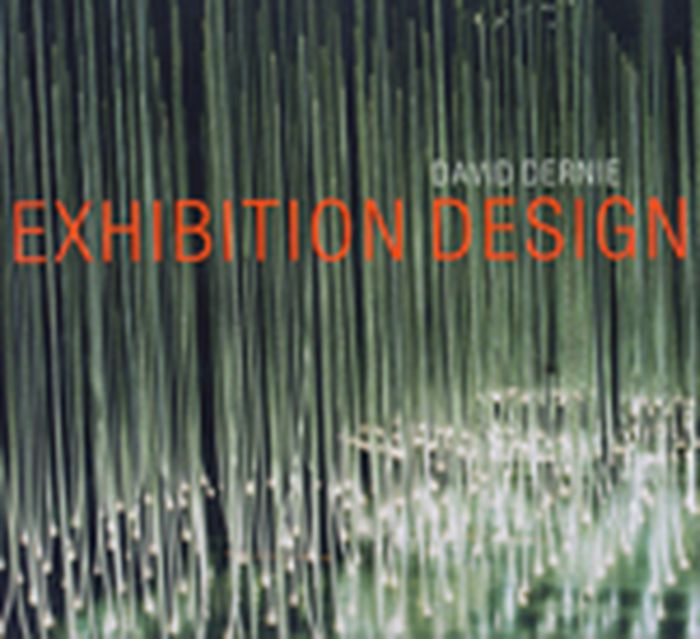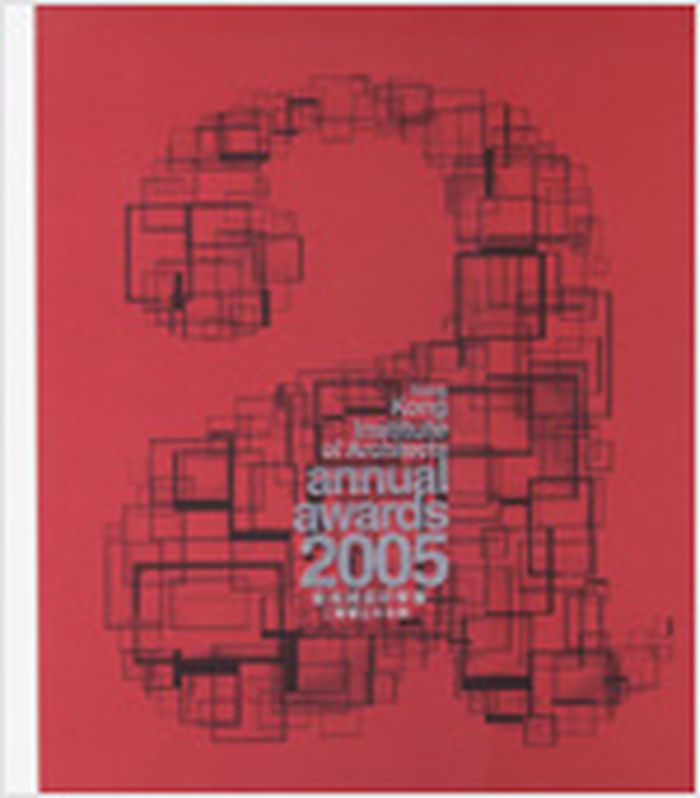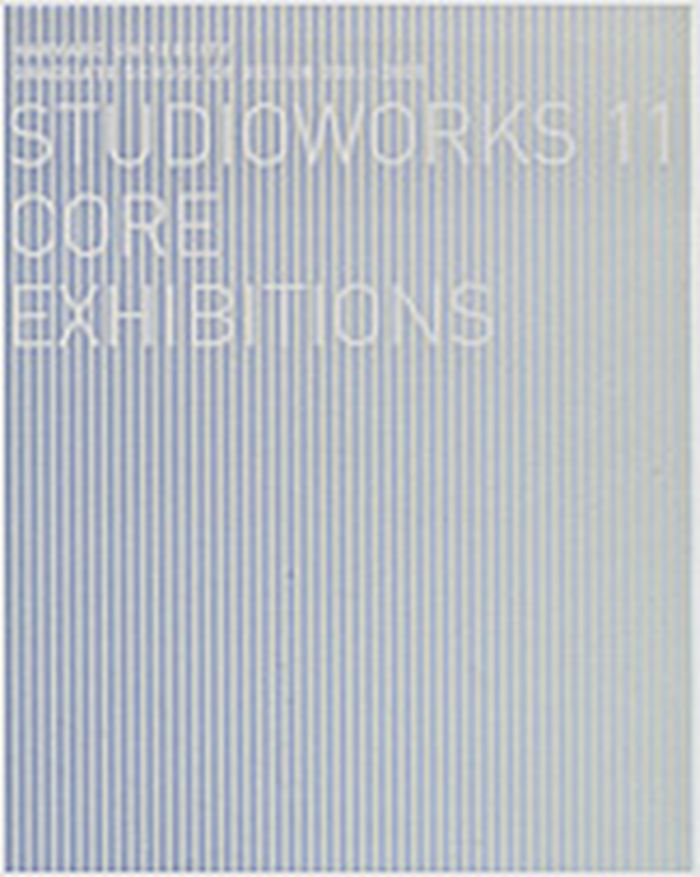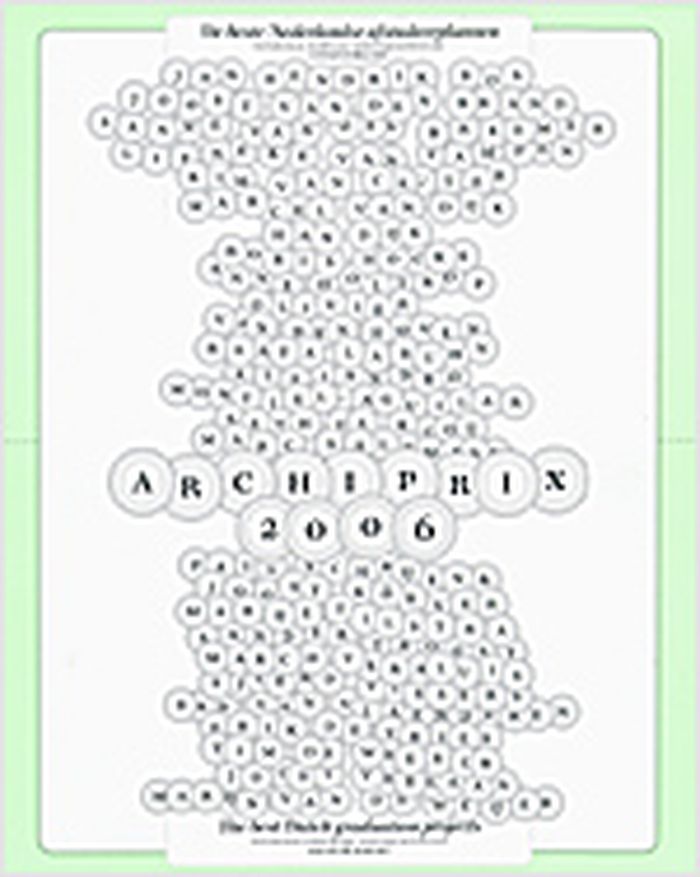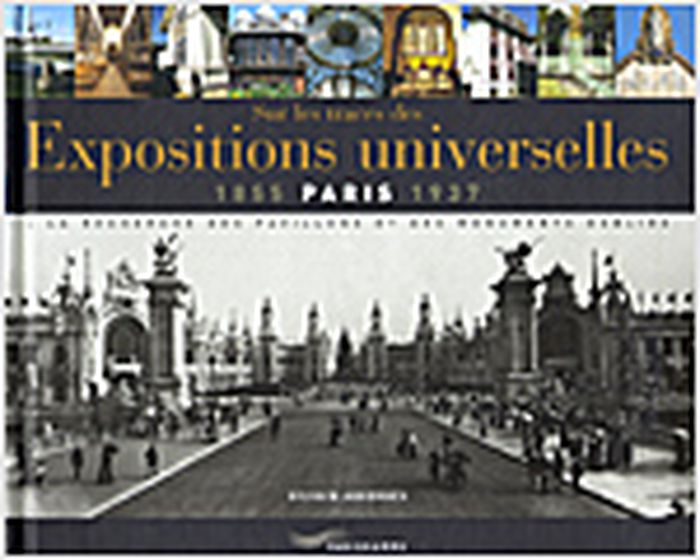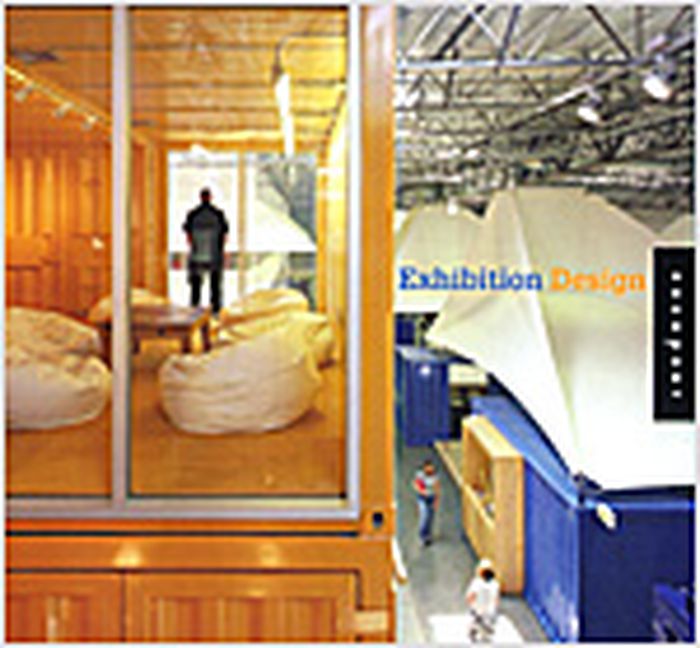livres
$18.95
(disponible sur commande)
Résumé:
The new curatorial studies programmes springing up across Europe and North America often deal with theoretical issues, yet one of the central questions of curating frequently remains unframed: What makes a great exhibition? In this book, fourteen essays by active curators and historians address the issue head-on, focusing on the curation of contemporary art in North(...)
What makes a great exhibition?
Actions:
Prix:
$18.95
(disponible sur commande)
Résumé:
The new curatorial studies programmes springing up across Europe and North America often deal with theoretical issues, yet one of the central questions of curating frequently remains unframed: What makes a great exhibition? In this book, fourteen essays by active curators and historians address the issue head-on, focusing on the curation of contemporary art in North America and Europe.
livres
février 2007
livres
$33.50
(disponible en magasin)
Résumé:
For almost 100 years, Coney Island was the most popular seaside destination in the United States. Each year, millions escaped the heat of New York City to savor the thrills of the Cyclone roller coaster and Wonder Wheel at the Astroland amusement park. They came to sample an original Nathan's Famous hot dog, witness the first demolition derby, or to take a chance at a(...)
avril 2007, New York
Coney island : the parchute pavilion competition
Actions:
Prix:
$33.50
(disponible en magasin)
Résumé:
For almost 100 years, Coney Island was the most popular seaside destination in the United States. Each year, millions escaped the heat of New York City to savor the thrills of the Cyclone roller coaster and Wonder Wheel at the Astroland amusement park. They came to sample an original Nathan's Famous hot dog, witness the first demolition derby, or to take a chance at a game of three-card Monte on the legendary boardwalk. The advent of air-conditioning, concerns about Coney's "tawdry" entertainment, and faster transportation to other beaches hastened the demise of what had become a uniquely American icon of entertainment and a defining terminus of New York at the water's edge. In an effort to revitalize the area, the Van Alen Institute, in concert with the Coney Island Development Corporation, held the Parachute Pavilion Competition, a contest to design a year-round pavilion in the shadow of the Parachute Jump, a landmark built for the 1939 World's Fair. Coney Island: The Parachute Pavilion Competition presents all 864 submissions—from the feasible to the fantastic—received from around the world. The winning design by London-based Carmody Groarke Hardie is a mesmerizing attraction in its own right, composed of two provocative trapezoids illuminated by thousands of colored light bulbs. The design respects the historic icon under which it is located but also promises to become an icon in its own right and bring the fun-loving spirit of Coney Island into the twenty-first century. Featuring essays, photographic documentation, and jury comments, Coney Island: The Parachute Pavilion Competition is a critical resource for students, designers, city officials, and anyone interested in Coney Island and the reinvention of the historic recreation sites of our cities.
livres
avril 2007, New York
livres
$75.00
(disponible sur commande)
Résumé:
avec la collaboration de Geert Bekaert, Immo Boyken, Sibel Bozdogan, Bernard Espion, Steven Jacobs, Jola Gola, Michel Provost, Sven Sterken, Rostislav Svacha, Jonathan M. Woodham. Volume compréhensive sur l'Expo 58 à Bruxelles.
octobre 2006, Bruxelles
L'architecture moderne à l'expo 58
Actions:
Prix:
$75.00
(disponible sur commande)
Résumé:
avec la collaboration de Geert Bekaert, Immo Boyken, Sibel Bozdogan, Bernard Espion, Steven Jacobs, Jola Gola, Michel Provost, Sven Sterken, Rostislav Svacha, Jonathan M. Woodham. Volume compréhensive sur l'Expo 58 à Bruxelles.
livres
octobre 2006, Bruxelles
Exhibition design
$84.50
(disponible sur commande)
Résumé:
Exhibition design features examples of a wide variety of exhibitions from aroud the world, from major trade and commerce fairs to well-know fine-art institutioa and small-scale artist-designed display. The introduction gives an historical perspective on the development of exhibitions and museums, with particular focus on the developments of the twentieth century.
septembre 2006, New York, London
Exhibition design
Actions:
Prix:
$84.50
(disponible sur commande)
Résumé:
Exhibition design features examples of a wide variety of exhibitions from aroud the world, from major trade and commerce fairs to well-know fine-art institutioa and small-scale artist-designed display. The introduction gives an historical perspective on the development of exhibitions and museums, with particular focus on the developments of the twentieth century.
$64.95
(disponible sur commande)
Résumé:
Providing an overview of new architecture in Hong Kong over 2005, the Annual Awards feature some 23 buildings and developments, including the Medal winner, special architectural and young architect's award winners. Projects are accompanied by plans, sketches, elevations and details. Text in English/Chinese
janvier 2005, Causeway Bay (Hong Kong)
Hong Kong Institute of Architects annual awards 2005
Actions:
Prix:
$64.95
(disponible sur commande)
Résumé:
Providing an overview of new architecture in Hong Kong over 2005, the Annual Awards feature some 23 buildings and developments, including the Medal winner, special architectural and young architect's award winners. Projects are accompanied by plans, sketches, elevations and details. Text in English/Chinese
Studio works 11
$31.50
(disponible sur commande)
Résumé:
The annual compilation of selected student work from Harvard University Graduate School of Design in two volumes.
septembre 2006, Cambridge, Mass.
Studio works 11
Actions:
Prix:
$31.50
(disponible sur commande)
Résumé:
The annual compilation of selected student work from Harvard University Graduate School of Design in two volumes.
$43.50
(disponible sur commande)
Résumé:
Each year the Dutch institutions teaching architecture, urban design and landscape architecture select their best final-year projects. The crop is unfailingly rich and varied and reflects the ambition of a new generation of designers ready to take on every imaginable design task that comes their way. The book Archiprix 2006 introduces the latest wave of fledgling design(...)
avril 2006, Amsterdam
Archiprix 2006 : the best Dutch graduation projects
Actions:
Prix:
$43.50
(disponible sur commande)
Résumé:
Each year the Dutch institutions teaching architecture, urban design and landscape architecture select their best final-year projects. The crop is unfailingly rich and varied and reflects the ambition of a new generation of designers ready to take on every imaginable design task that comes their way. The book Archiprix 2006 introduces the latest wave of fledgling design talent. Archiprix is well-known at home and abroad as a platform for promising architects, urban designers and landscape architects. Not just clients, employers and schools but also the organizers of competitions and workshops are becoming increasingly adept at locating gifted designers in the making as presented by Archiprix.
livres
$57.50
(disponible sur commande)
Résumé:
The last thirty years of the twentieth century saw the birth of more than six hundred art museums in the United States alone, with equal proliferation in much of Europe. Such projects as Frank Gehry's Guggenheim in Bilbao and Richard Meier's Getty Center in Los Angeles have dominated television newscasts and newspaper headlines worldwide. The success or failure of these(...)
octobre 2006, New York
Towards a new museum, expanded edition
Actions:
Prix:
$57.50
(disponible sur commande)
Résumé:
The last thirty years of the twentieth century saw the birth of more than six hundred art museums in the United States alone, with equal proliferation in much of Europe. Such projects as Frank Gehry's Guggenheim in Bilbao and Richard Meier's Getty Center in Los Angeles have dominated television newscasts and newspaper headlines worldwide. The success or failure of these new museums, in aesthetic, educational and financial terms, results from a variety of factors, none more important than their architecture. In this unique investigation, architectural historian Victoria Newhouse challenges many hitherto accepted premises of museum design. She demonstrates that new museums are often based on old concepts that no longer apply. This unvarnished analysis is informed by interviews with museum directors and curators, collectors, artists and the architects themselves. Newhouse divides her discussion according to the dominant characteristics of the museums : private collections, single-artist museums, sacred spaces, artists' self-created sites, and museum additions. In addition to the Getty and the Guggenheim Bilbao, the author discusses the Menil Collection in Houston, Texas; the Andy Warhol Museum in Pittsburgh; the Kiasma Museum for Contemporary Art in Helsinki; Donald Judd's Chinati Foundation in Marfa, Texas; the Metropolitan Museum of Art and the Museum of Modern Art in New York; the Grand Louvre and the Centre Georges Pompidou in Paris; and many more.
livres
octobre 2006, New York
$37.50
(disponible sur commande)
Résumé:
Que reste-t-il des Expositions universelles parisiennes, ces manifestations glorifiant les progrès industriels ou techniques, célébrant les arts à l'occasion et affirmant un goût prononcé pour une ethnologie plus pittoresque que scientifique ? La tour Eiffel, bien sûr, comme le Grand Palais ou le palais du Trocadéro. Mais la grande majorité des pavillons, faits de bois et(...)
Sur les traces des expositions universelles : Paris, 1855-1937
Actions:
Prix:
$37.50
(disponible sur commande)
Résumé:
Que reste-t-il des Expositions universelles parisiennes, ces manifestations glorifiant les progrès industriels ou techniques, célébrant les arts à l'occasion et affirmant un goût prononcé pour une ethnologie plus pittoresque que scientifique ? La tour Eiffel, bien sûr, comme le Grand Palais ou le palais du Trocadéro. Mais la grande majorité des pavillons, faits de bois et de torchis, de brique ou de plâtre, décorés de stuc et de céramique et promis à la destruction à l'issue des festivités, ont disparu. Certaines de ces constructions précaires ont cependant été rachetées ou récupérées par des collectivités ou des particuliers. On retrouve ainsi à Paris ou plus encore en banlieue des dizaines de pavillons anciens ou d'éléments remontés de façon plus ou moins fantaisiste.
Exhibition design
$40.95
(disponible sur commande)
Résumé:
Exhibition design has become a significant architectural way to present an idea or a product; to communicate its meaning; to show its beauty; and, ideally, to increase sales. This book shows how trade fair and exhibition design projects have evolved into a perfect demonstration of architectural art: an art that combines the forming of space with the use of materials and(...)
juin 2006, Gloucester, MA
Exhibition design
Actions:
Prix:
$40.95
(disponible sur commande)
Résumé:
Exhibition design has become a significant architectural way to present an idea or a product; to communicate its meaning; to show its beauty; and, ideally, to increase sales. This book shows how trade fair and exhibition design projects have evolved into a perfect demonstration of architectural art: an art that combines the forming of space with the use of materials and lighting to achieve a convincing narrative and setting. Whether we find them in trade fairs or in museums, this book gathers the best recent installations, featured through full-color pictures, drawing plans, and sketches; and supplemented with descriptive text with practical information on manufacturers, furniture, and materials.
